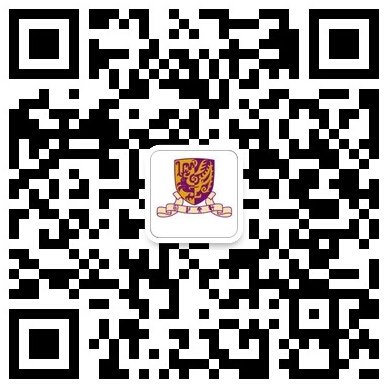From Undergraduate to Professor: Wang Jie’s Innovative Course at CUHK-Shenzhen Praised by Students
Step into Wang Jie’s office, and you’ll find the whiteboard covered in dense mathematical formulae. When the?Shenzhen Evening News?visited, he was explaining a research topic on "the application of robust optimisation in trustworthy artificial intelligence" to a group of his students. As his pen tapped against the board, he sketched out a string of equations before turning to ask, “Are you with me so far?” Several students nodded, their eyes following his every move.
Wang Jie is an Assistant Professor at the School of Artificial Intelligence at The Chinese University of Hong Kong, Shenzhen (CUHK-Shenzhen), but he has another deep connection to the University. Nine years ago, he was among the first intake of students?studying mathematics?at the School of Science and Engineering, CUHK-Shenzhen. Now, in the summer of 2025, after completing his PhD at the Georgia Institute of Technology’s Department of Industrial Engineering, he has returned. His journey from student to teacher on the same campus marks a new chapter in his story.
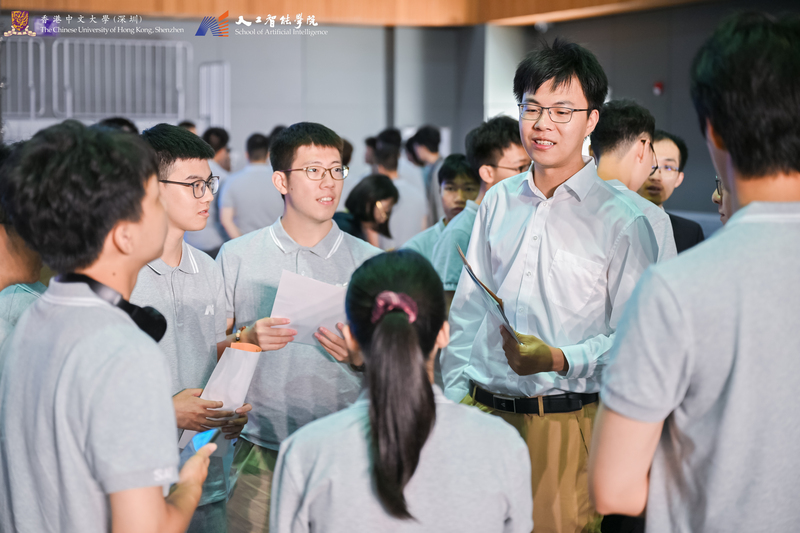
Inspired by a Guiding Light
On the afternoon of 2 September, Wang Jie delivered his first lecture. He had barely slept the night before, busy rehearsing. Yet, once he stood at the lectern, he says his nerves vanished.
He shared his own story with the students, hoping to illustrate the broad career prospects that CUHK-Shenzhen can offer. This candour helped him build an immediate rapport with the class. “In this new era, I don't want to be someone who simply transmits knowledge,” he explains. “I aspire to be a mentor who can guide students in their overall development.”
This desire stems from his own experience of being guided by an inspirational teacher. “You want to become the light that once shone on you,” Wang Jie says, summarising his motivation for choosing a career in education.
It was at CUHK-Shenzhen that he met his mentor, Professor Yang Shenghao, the person who had the greatest influence on his career. From his first year, Wang Jie joined Yang's lab, and conducted research under his supervision. “Professor Yang never gave us the answers outright,” he recalls. “Instead, he would spend weeks asking questions, guiding us to discover the solutions for ourselves.”
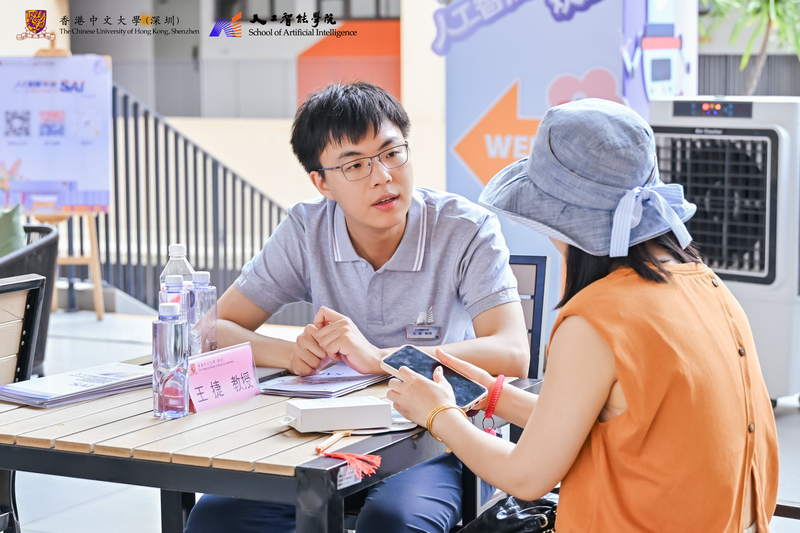
He remembers one night, just before a paper deadline, when Professor Yang called him into his office. They sat side-by-side, revising the manuscript from 11 pm until 8 am. Wang Jie was exhausted after the all-nighter, but as soon as the paper was submitted, Professor Yang went straight to teach his morning class. This dedication left a profound impression on him. “That’s the kind of teacher I want to be,” he reflects, “one like Professor Yang, who is dedicated and meticulously guides students as they learn and explore.”?
?
Fostering Innovation in the Classroom
As a young academic, Wang Jie is keen to integrate emerging technologies into his teaching. His course, “Practice of Artificial Intelligence,” is designed for first-year students who have just completed their university entrance exams and may have little background in mathematics or programming. Through project-based learning, they are introduced to the advanced field of intelligent decision-making from their very first lecture.
“Rather than spoon-feeding them information, I get them to tackle a problem first and discover what they need to learn along the way,” he says. He uses LLMs to support his teaching, which is based on case studies and inquiry. The final assessment is a group project, where each team explores a relevant problem of their own choosing.
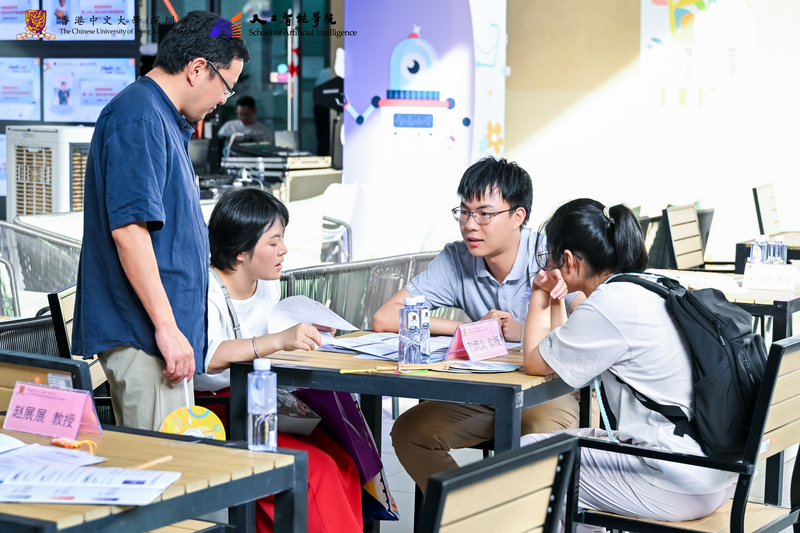
This novel approach has proven popular, with students calling the course “very cool.” One remarked, “This class is completely different from anything I experienced in secondary school or even in my other university courses!” Another posted on social media, “I feel so lucky to be a part of a class like this.” This positive feedback has fuelled Wang Jie’s passion for teaching. “Shenzhen is a hub of technological innovation,” he says. “I hope to channel that local spirit to make my classes equally dynamic and creative.”
This spirit is precisely why he chose to return to Shenzhen. He believes the city’s higher education has seen transformative growth, cultivating talent not by copying old models but by blending the best of Chinese and Western educational philosophies to produce globally competitive graduates. At the same time, Shenzhen’s universities are deeply integrated with local industry. Leading firms like Tencent, DJI, and Huawei provide practical scenarios and real-world opportunities, ensuring learning is not merely theoretical and that students can genuinely "apply what they learn."
This year, facing his first Teachers' Day as an educator, Wang Jie says “It feels more like an oath, a reminder to stay true to my original mission.” He hopes to receive sincere feedback from his students. “Whether it’s praise or constructive criticism,” he says, “that’s the best Teachers' Day gift I could ask for.”
?
Source: Shenzhen Evening News

